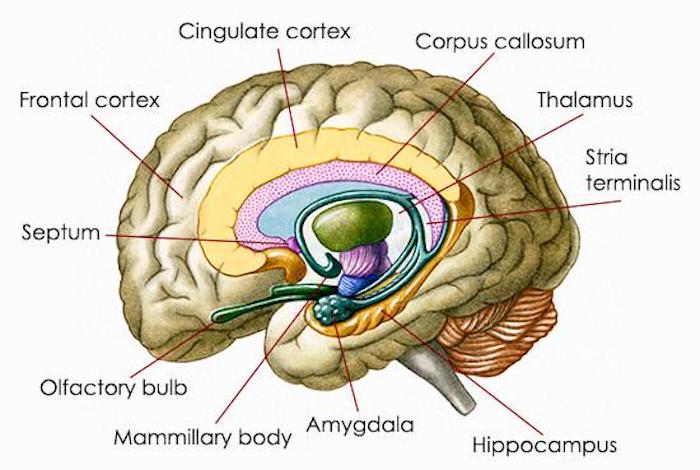Chronic stress makes us worn-out, anxious, depressed, and according to a new study, causes damage to critical brain neurons. Researchers report that mice exposed to prolonged stress develop structural changes in the amygdala, a part of the brain that regulates basic emotions, such as fear and anxiety. These changes have been linked to behaviors associated with anxiety and depressive disorders. The study also identified a common nutritional supplement that can protect the neurons to prevent these changes.

“There have been hints that the amygdala displays a complex response to stress,” said lead author Carla Nasca. “When we took a closer look at three regions within it, we found that neurons within one, the medial amygdala, retract as a result of chronic stress.
While this rewiring of brain architecture can contribute to disorders such as anxiety and depression, their experiments also showed that the neurological and behavioral effects of stress can be prevented with treatment by a common nutritional supplement, acetyl L-carnitine (ALC).
In their paper, published in Molecular Psychiatry, the researchers found that ALC increased resilience among mice most at risk for developing anxiety or depression-like behaviors.
A close look at the amygdala
The brain’s limbic system controls emotions and memory, and is comprised of a number of structures, including the amygdala, which are located deep in the brain. Scientists interested in the neurological effects of stress have focused on several structures in the limbic system, but the medial amygdala has thus far received little attention in stress studies.
To see what was going on in this area, Nasca and her team subjected mice to 21 days of periodic confinement within a small space — an unpleasant experience for mice. Afterward, they tested the mice to see if their behaviors had changed — for instance, if they had begun to avoid social interaction and showed other signs of depression. They also analyzed the neurons of these mice within the three regions of the amygdala.
While some areas showed healthy signs of flexibility and adaptation, in a part of the brain called the medial amygdala, neuronal branches, which form crucial connections to other parts of the brain, appeared to shrink.
The loss of connections like these can harm the brain, distorting its ability to adapt to new experiences, leaving it trapped in a state of anxiety or depression.
Protecting neurons
The good news is that this effect can be prevented. When the scientists later repeated the stress experiment they treated mice nearing the end of their 21 days of chronic stress with acetyl L-carnitine, a nutritional compound derived from the amino acid, lysine. These mice fared better than their untreated counterparts; not only were they more sociable, the neurons of their medial amygdalas also showed more branching.
Stress does not affect everyone the same way. This is true for both humans and mice — some individuals are just more vulnerable. Nasca and her colleagues’ experiments included mice at high risk of developing anxiety- and depression-like behaviors in response to stress.
Treatment with acetyl L-carnitine also appeared to protect these mice, suggesting that a similar preventative approach might work for depression-prone people.
Both humans and mice naturally produce acetyl L-carnitine under normal conditions, but studies have shown that some depression-prone animals are deficient in acetyl L-carnitine. In a separate study, Nasca and colleagues are examining whether people with depression have abnormally low levels of the molecule.
“Chronic stress is linked to a number of psychiatric conditions, and this research may offer some new insights on their pathology,” McEwen says. “It seems possible that the contrasting responses we see within the amygdala, and the limbic system in general, may contribute to these disorders’ differing symptoms, which can range from avoiding social contact to experiencing vivid flashbacks.”
Source: T Lau, B Bigio, D Zelli, B S McEwen, C Nasca. Stress-induced structural plasticity of medial amygdala stellate neurons and rapid prevention by a candidate antidepressant. Molecular Psychiatry, 2016; DOI: 10.1038/MP.2016.68












Thank you for this information. It has helped me understand better the workings of the mind and how there can be many approaches to dealing with anxiety and depression. Also in being this article makes it possible to better understand the how and the why of anxiety and how nutrition is a valid pathway towards overall improvement
[…] enhances athletic performance, and aids in weight loss, it would be easy to overlook its incredible stress-battling benefits. L-carnitine easily crosses the blood-brain barrier and has been found to reverse stress-related […]